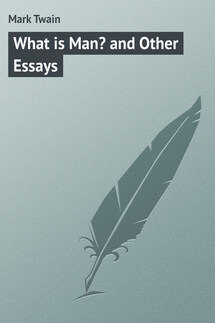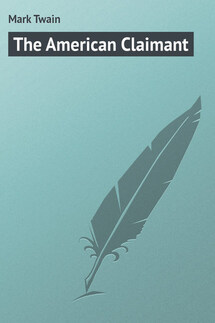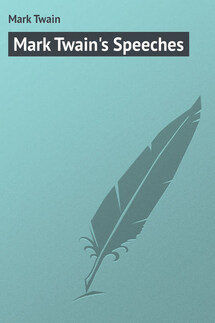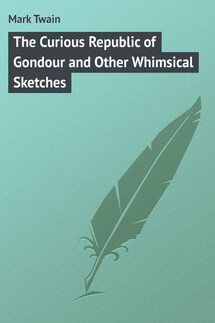Chapters from My Autobiography - страница 4
“Yes, it is but a trifle, as things go nowadays – a bagatelle – but amusing. It passes the time. The boy thinks great things of it, but he is young, you know, and imaginative; lacks the experience which comes of handling large affairs, and which tempers the fancy and perfects the judgment. I suppose there’s a couple of millions in it, possibly three, but not more, I think; still, for a boy, you know, just starting in life, it is not bad. I should not want him to make a fortune – let that come later. It could turn his head, at his time of life, and in many ways be a damage to him.”
Then he said something about his having left his pocketbook lying on the table in the main drawing-room at home, and about its being after banking hours, now, and—
I stopped him, there, and begged him to honor Cable and me by being our guest at the lecture – with as many friends as might be willing to do us the like honor. He accepted. And he thanked me as a prince might who had granted us a grace. The reason I stopped his speech about the tickets was because I saw that he was going to ask me to furnish them to him and let him pay next day; and I knew that if he made the debt he would pay it if he had to pawn his clothes. After a little further chat he shook hands heartily and affectionately, and took his leave. Cable put his head in at the door, and said—
“That was Colonel Sellers.”
Mark Twain.
(To be Continued.)
II
My experiences as an author began early in 1867. I came to New York from San Francisco in the first month of that year and presently Charles H. Webb, whom I had known in San Francisco as a reporter on The Bulletin, and afterward editor of The Californian, suggested that I publish a volume of sketches. I had but a slender reputation to publish it on, but I was charmed and excited by the suggestion and quite willing to venture it if some industrious person would save me the trouble of gathering the sketches together. I was loath to do it myself, for from the beginning of my sojourn in this world there was a persistent vacancy in me where the industry ought to be. ("Ought to was” is better, perhaps, though the most of the authorities differ as to this.)
Webb said I had some reputation in the Atlantic States, but I knew quite well that it must be of a very attenuated sort. What there was of it rested upon the story of “The Jumping Frog.” When Artemus Ward passed through California on a lecturing tour, in 1865 or ’66, I told him the “Jumping Frog” story, in San Francisco, and he asked me to write it out and send it to his publisher, Carleton, in New York, to be used in padding out a small book which Artemus had prepared for the press and which needed some more stuffing to make it big enough for the price which was to be charged for it.
It reached Carleton in time, but he didn’t think much of it, and was not willing to go to the typesetting expense of adding it to the book. He did not put it in the waste-basket, but made Henry Clapp a present of it, and Clapp used it to help out the funeral of his dying literary journal, The Saturday Press. “The Jumping Frog” appeared in the last number of that paper, was the most joyous feature of the obsequies, and was at once copied in the newspapers of America and England. It certainly had a wide celebrity, and it still had it at the time that I am speaking of – but I was aware that it was only the frog that was celebrated. It wasn’t I. I was still an obscurity.









